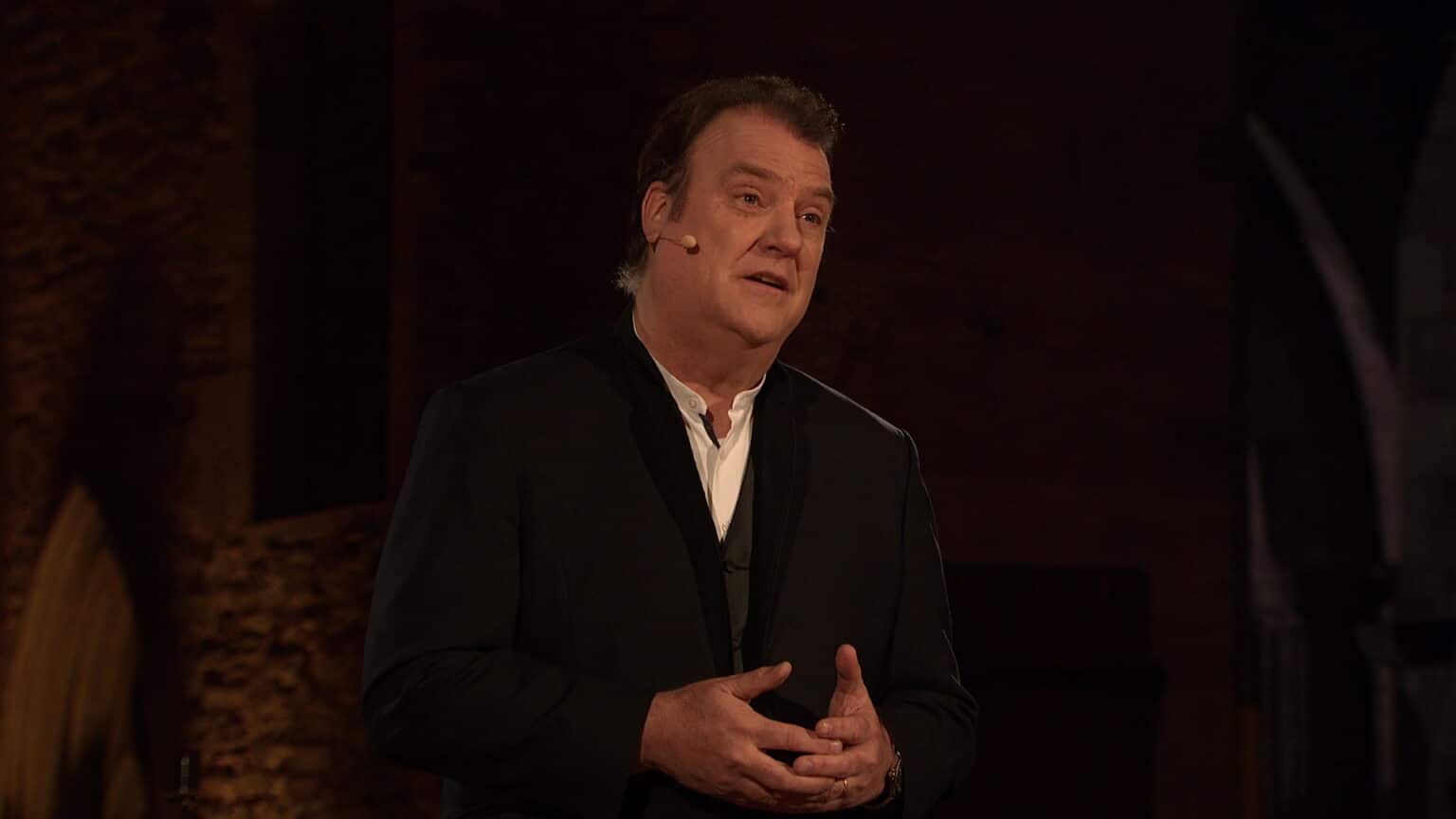Reviewing the face of Bryn Terfel
OrchestrasOur reviewer Alastair Macaulay marvels at the great baritone’s facial vitality:
Royal Festival Hall, March 26
by Alastair Macaulay
Bryn Terfel, one of the world’s greatest singers, for thirty years, has long seemed not just an artist but a great human being. On Sunday afternoon at the Royal Festival Hall with the Philharmonia Orchestra, it was a rare experience just to watch him stand and listen to Wagner’s music surrounding crucial scenes for Hans Sachs in “Die Meistersinger von Nürnberg” and Wotan in “Die Walküre”.
The theatre director William Gaskill once wrote of how, in the televised concerts of Maria Callas, you watch her face change as her music begins: her muscles change into those of the character she is about to interpret as she listens. The only such transformation in Terfel that I observed was a subtle lengthening of the neck before singing, but there seemed no doubt from his eyes and the angles of his head that he listened to the “Meistersinger” orchestral music as a deeply human poet and to the “Walküre” music as a god filled with sorrow, with paternal love, and with sublime awareness of his own limitations. He made only a very few gestures (each simple but powerful); but he stood still with such authority that a long silence followed each of his items, a silence that seemed to break only when he was ready.
The Hans Sachs scene was the Flieder (Lilac) monologue from early in Act Two, in which Sachs the cobbler poet contemplates the paradoxes of appreciating new art within old traditions. Terfel’s mastery of pointing words, evident in the lightness of the word “Flieder” (“elder tree”) in its first line, is always placed within his mastery of shaping the vocal line. It was there again in Wotan’s farewell to his daughter in “Die Walküre”, through to the wonderfully mixed emotions with which the god anticipates a man free in a way that he, the god, is not (“der freier als ich, der Gott”). That arc of thought from the throbbingly annunciatory “freier” (“freer”) to the darkly tense, even bound, tone of “Gott” seemed to encapsulate much of the entire “Ring”: the hero who will break the old order, the god who anticipates his own overthrow. Terfel reveals many such potent details without ever over-painting words or over-intellectualising ideas.
His British conductor, Alexander Soddy, was replacing the Covid-affected Esa-Pekka Salonen. The programme began with the “Meistersinger” overture; the “Walküre” scene was preceded by the prelude to Act Three of “Lohengrin”; after the interval, the concert ended with Bruckner’s Sixth Symphony. Soddy did admirably. Bruckner makes a fascinating counterpart to Wagner: his Sixth is full of dramatic ideas, contrasting fairy music with martial progresses, re-working pulsating motifs as if submitting them to a larger process. One of his motifs is remarkably close to the opening of the Liebestod in “Tristan”, yet he never sounds Wagnerian. (Although he was the younger composer by eleven years, his harmonies are far more orthodox.) In one gorgeous passage, he plays a dark brass melody against a buoyant string pizzicati.
Such contrasts abound here. Trying to sense the architecture with which Bruckner pieces these diverse elements together is a compelling mystery: I’m left feeling like Wagner’s Hans Sachs, marvelling at the vitality of the unknown.






Absolutely right. So many singers over-annunciate, thinking that this is what communication is about. A loud “T” or an explosive “K” that often manage to overwhelm the vowels onto which they are attached. But this is meaningless. Meaning is about becoming. Bryn becomes the poet, the character, the emotion, the wanderer, the vagabond, the god. I was just listening to his “In der Fremde” (Liederkreis, Op.39) from the Verbier recital (DG). The text is only the seed. What grows from it is a performance that embodies the pathos, the nostalgia, the inevitability. He makes us understand why Schumann made the melodic and harmonic choices he did. It is heartbreaking. That is Bryn’s talent, as it was Benjamin Luxon’s before him. I just wish he would record “Winterreise”!
As a vocalise…
For some inscrutable reason the orchestra in the Bruckner was beefed up (presumably by Salonen) to the tune of three extra horns (not bumpers, the four parts seemed to be shared around and all seven played in the loud bits), an extra trumpet and an extra trombone. Why? Not to mention that the winds – only the normal double – were completely overwhelmed.
The Sixth is one of the very few Bruckner symphonies where there is next to no argument about alternative versions. Why create a new one on the fly?